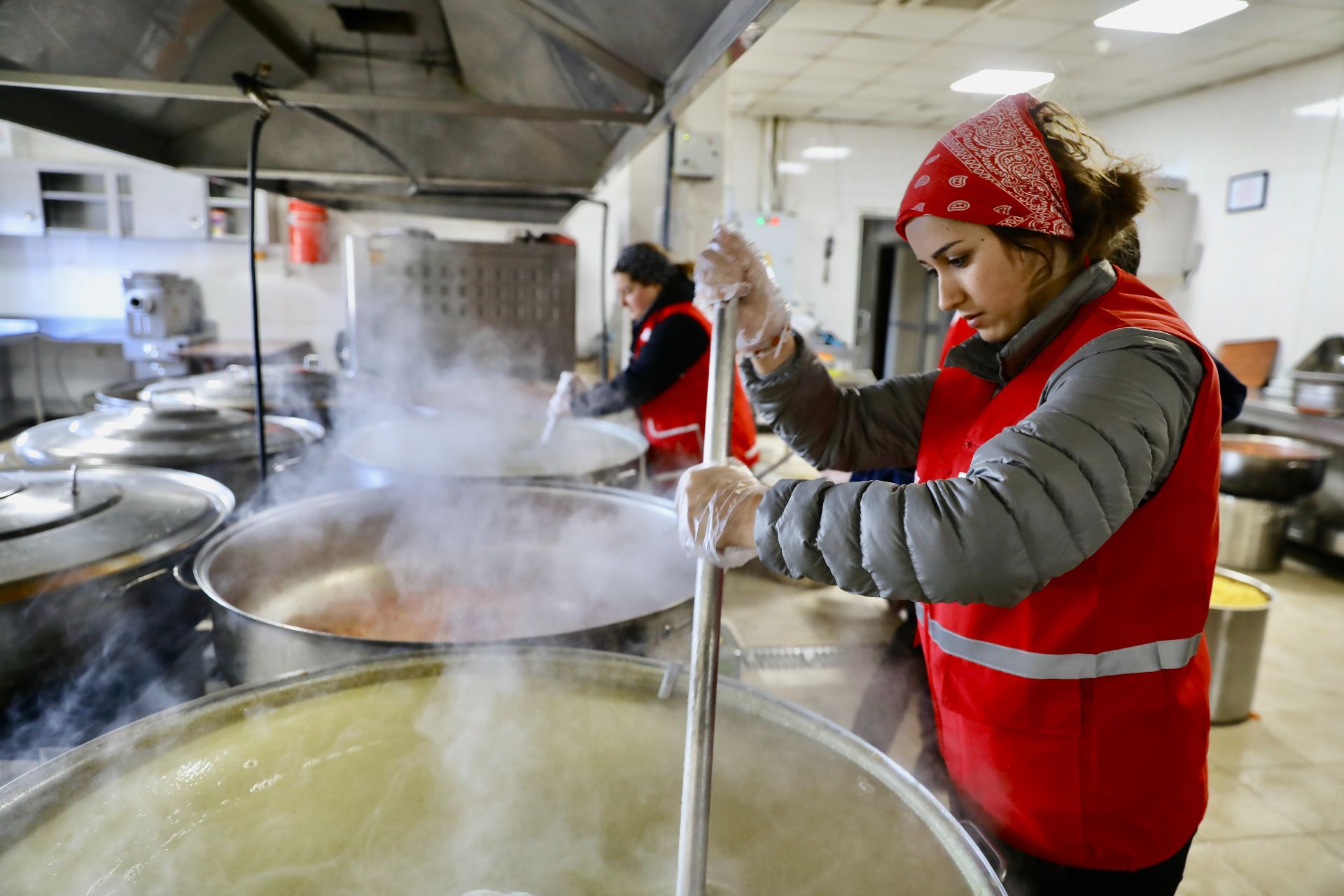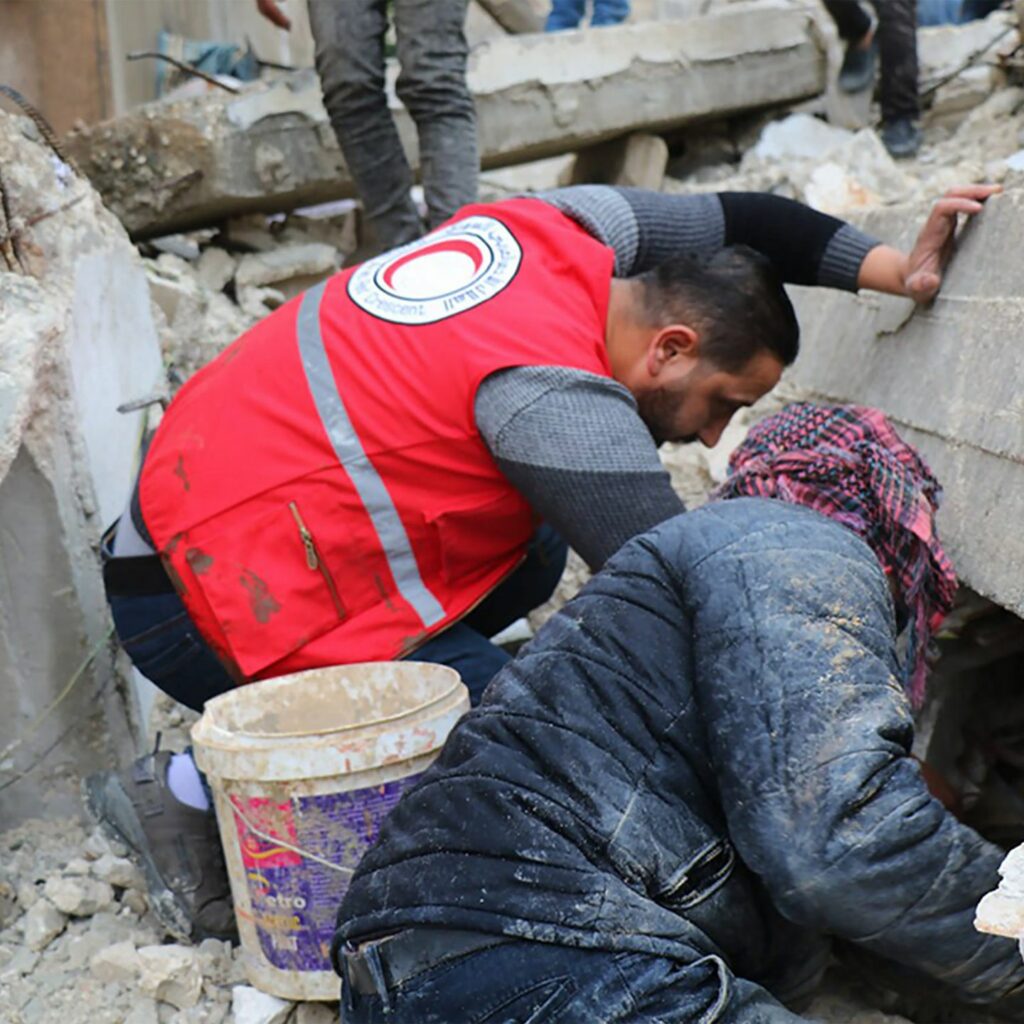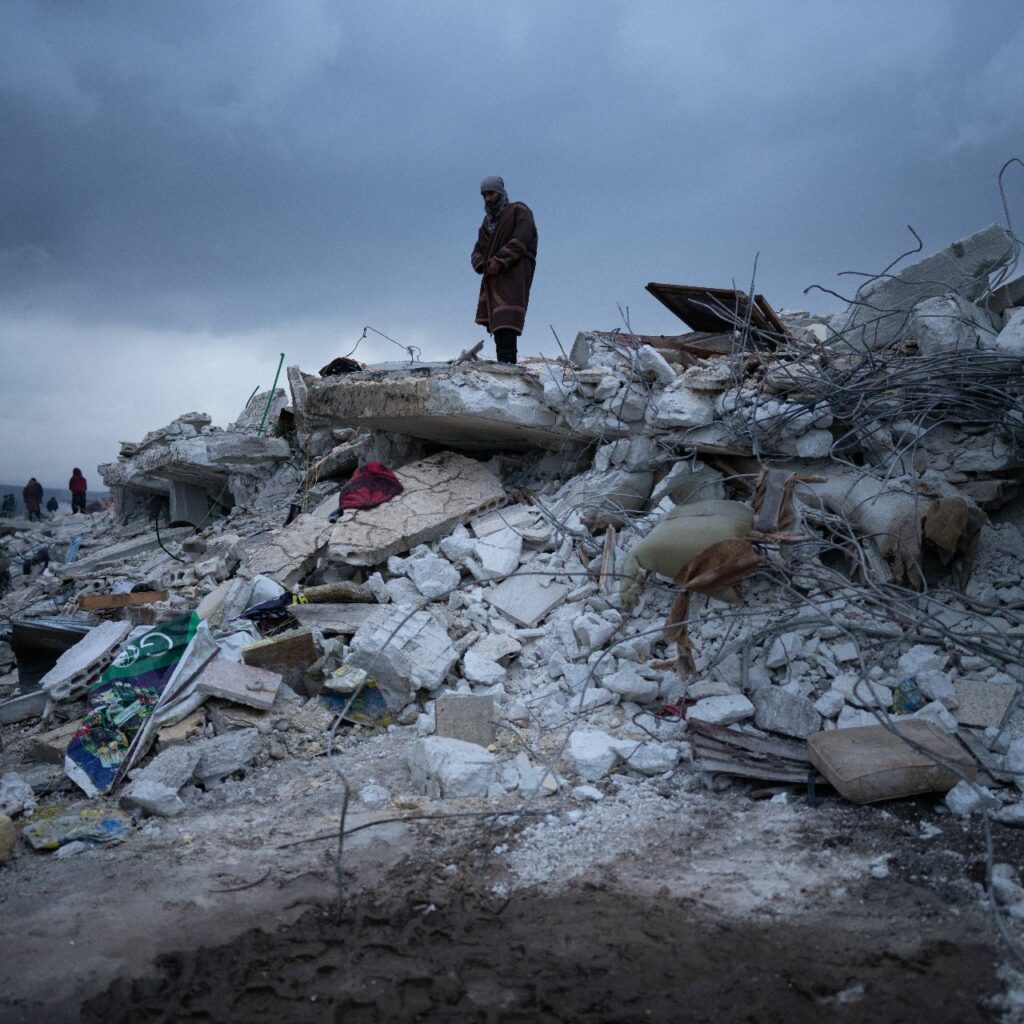The huge earthquakes that hit Turkey and Syria in early February a month ago weren’t necessarily a huge surprise for the populations affected, but the scale of the devastation was an enormous shock – turning millions of lives upside down in an instant. It’s the worst disaster in the region for 200 years.
More than 50,000 people are known to have died, a similar number of buildings, many of them tower blocks, have been severely damaged or completely collapsed. The size of the area affected is also staggering. If it had happened here, it would have caused destruction and disruption across all of mainland Scotland. Video explainer available to download here.
Amidst this trauma and misery, there has been a glimmer of hope for survivors as a number of UK humanitarian charities have been supporting aid efforts in this region throughout the Syrian civil war, providing shelter, food and clean water and other support to the most vulnerable communities and individuals. Aid workers there describe families living for years in tents as the lucky ones – many now hosting families whose temporary homes or shelters folded during the quakes.

This crucial factor made it much easier for the Disaster Emergency Committee to launch an urgent appeal for support from the UK public just three days after the earthquakes. The power and effectiveness of the DEC comes when 15 of the UK’s leading aid charities, 6 with a Scottish presence, come together with the main UK broadcasters to collectively ask the public, governments and major companies to donate as much as they can to support an urgent, effective humanitarian response.
This long-established unified call to action always raises millions of pounds within days which allows DEC members like the Red Cross, Oxfam and Save the Children to accelerate delivery of aid to those who need it most. Increasingly, as the localised approach is more widely adopted, this support is delivered through the local partners. In disasters like this, they are nearly always the initial responders who know the geography along with the cultures, customs and needs of the most vulnerable families and communities who need the most help.
The appeal response here in Scotland has once again been incredible, more than £10 million raised here in the first six weeks of the Appeal – more than £120 across the UK.

This translates into a huge increase in humanitarian supplies reaching those in the worst affected areas. In Turkey, the Red Cross/Red Crescent delivered 70 million hot meals and 60,000 tents in the first two weeks of their response. The funds raised will also allow DEC members to respond for many months to come with focus now moving to trauma counselling and other types of longer-term support which will support individuals and communities as they struggle to rebuild their lives.
This disaster is the latest in an unprecedented series of major humanitarian crises that the DEC has responded to in the past 16 months. The ongoing hunger crisis in Afghanistan, the continuing conflict in Ukraine and the devastating floods still affecting millions of people in Pakistan.
All of these appeals have been generously supported not only by vast numbers of individuals across Scotland but also by many business partners such as NatWest, Baillie Gifford and others as well as the Scottish Government through its Humanitarian Emergency Fund and other international development funding streams.

Sadly, humanitarian needs, already at record levels around the world, look set to increase further through continued conflict, the lingering economic impact of Covid and the growing threat of the climate emergency. Against this incredibly challenging backdrop, it is heartening that so many Scots are responding with such compassion and solidarity in recognition of our crucial responsibilities as global citizens.
To everyone that has supported our work and those we hope will donate soon, we say a huge thank you.
